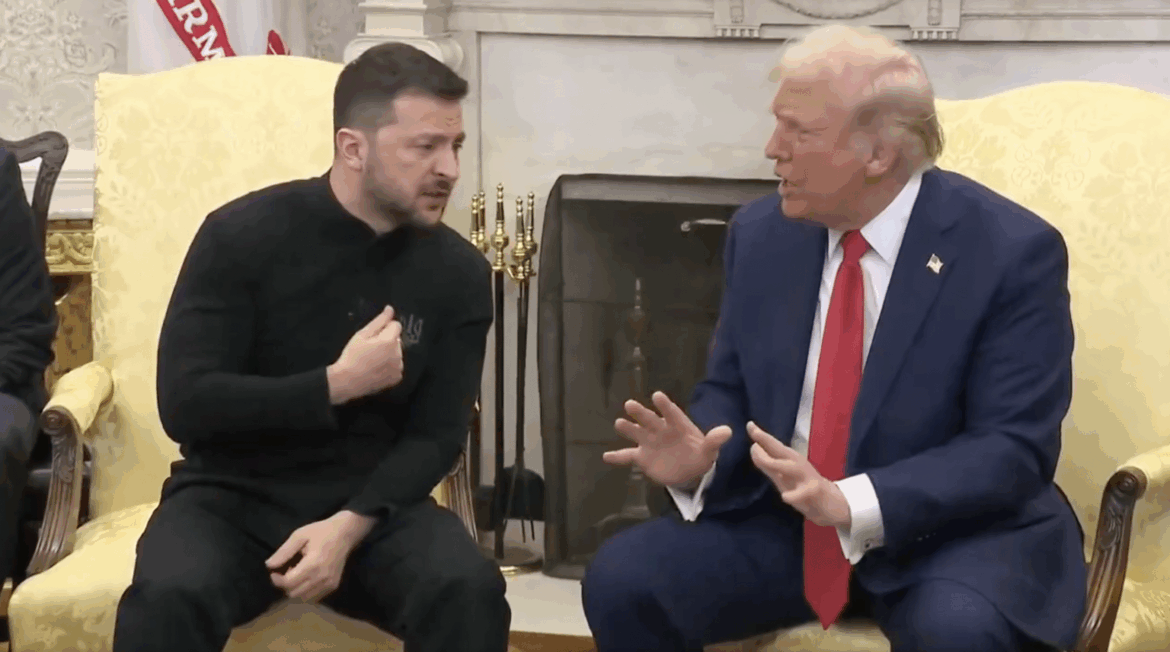Trump Delivers: Zelensky Accepts Strategic Minerals Pact That Puts U.S. Interests First
After two years of endless war, spiraling costs, and empty promises from Biden and his NATO allies, Ukraine’s President Volodymyr Zelensky has finally accepted a bold proposal that delivers tangible benefits—not just for Ukraine, but for the American taxpayer.
President Donald J. Trump, mocked by critics for claiming he could end the war in 24 hours, has achieved what no Western leader has: securing a bilateral agreement that ties U.S. aid to American economic interests while preserving Ukrainian sovereignty.
The $150 Billion Shift: From Blank Checks to Balanced Trade
Finalized on April 30, 2025, the U.S.-Ukraine Mineral Development Agreement signals a dramatic shift from Biden-era handouts to Trump’s “America First” foreign policy. Under the deal, Ukraine retains ownership of its resources, while American companies gain preferential access to develop new mineral, oil, and gas projects—some of the most strategically critical in the world.
Instead of another bailout, this is a strategic partnership. The United States will no longer fund Ukraine’s war effort without getting something in return.
Highlights of the Deal:
-
Joint U.S.-Ukraine investment fund created to manage mineral extraction and energy reconstruction.
-
Ukraine retains full ownership of its subsoil resources, but profits from new projects will be reinvested in Ukraine for 10 years.
-
American companies receive priority access to lithium, graphite, titanium, copper, and oil projects.
-
U.S. earnings are exempt from Ukrainian taxes and protected under international arbitration law.
-
$50 million in weapons sales approved under a direct commercial sales program, bypassing bloated Pentagon pipelines.
No More Free Money—Just Smart Deals
Zelensky had previously rejected Trump’s proposals, demanding blank checks instead of business terms. Now, facing global donor fatigue and dwindling patience in Washington, Ukraine’s leader has signed on. And this time, it’s different.
There are no security guarantees, no automatic NATO membership, and no illusions. Instead, Trump’s team secured a legally binding, profit-driven deal that sends a message: U.S. aid must now serve U.S. interests.
Challenges Ahead: Rebuilding Before Mining
The road to resource extraction won’t be easy. Much of Ukraine’s mining infrastructure has been bombed into ruin. Over half the country’s electricity capacity is offline, and many geological maps date back to the Soviet Union. Without modern surveys and grid restoration, investors face uncertainty—but with American capital and oversight, those gaps will close.
Still, roughly $350 billion of critical mineral reserves remain trapped in Russian-occupied territories, and that’s unlikely to change anytime soon. But securing the rest could be a game-changer for global supply chains—and break Western dependence on China.
A Blow to Europe and the Globalist Status Quo
Europe, for all its lofty talk, played no role in the deal. Their support remains symbolic—more focused on writing checks than rebuilding economies. Trump’s deal exposes the EU’s diplomatic bankruptcy while offering a model that others may soon follow.
The agreement also delivers a subtle but powerful rebuke to the Biden legacy: more money, no accountability, no strategy.
Not NATO, But a New Security Doctrine
While Ukraine remains outside NATO—failing key democratic, corruption, and conflict metrics—this economic partnership serves as what Treasury Secretary Scott Bessent calls an “economic security guarantee.” America’s financial stake in Ukraine’s recovery sends a loud message to Moscow: attack our investment, and face the consequences.
Conclusion: Trump’s Diplomatic Doctrine in Action
This deal is classic Trump—transactional, results-oriented, and unapologetically pro-American. It doesn’t promise endless military involvement, but it ensures every dollar spent yields a strategic return. After two years of global hand-wringing, it’s a defining moment for diplomacy done right.
The message to the world is clear: Under Trump, America doesn’t pay for wars—it invests in peace.

